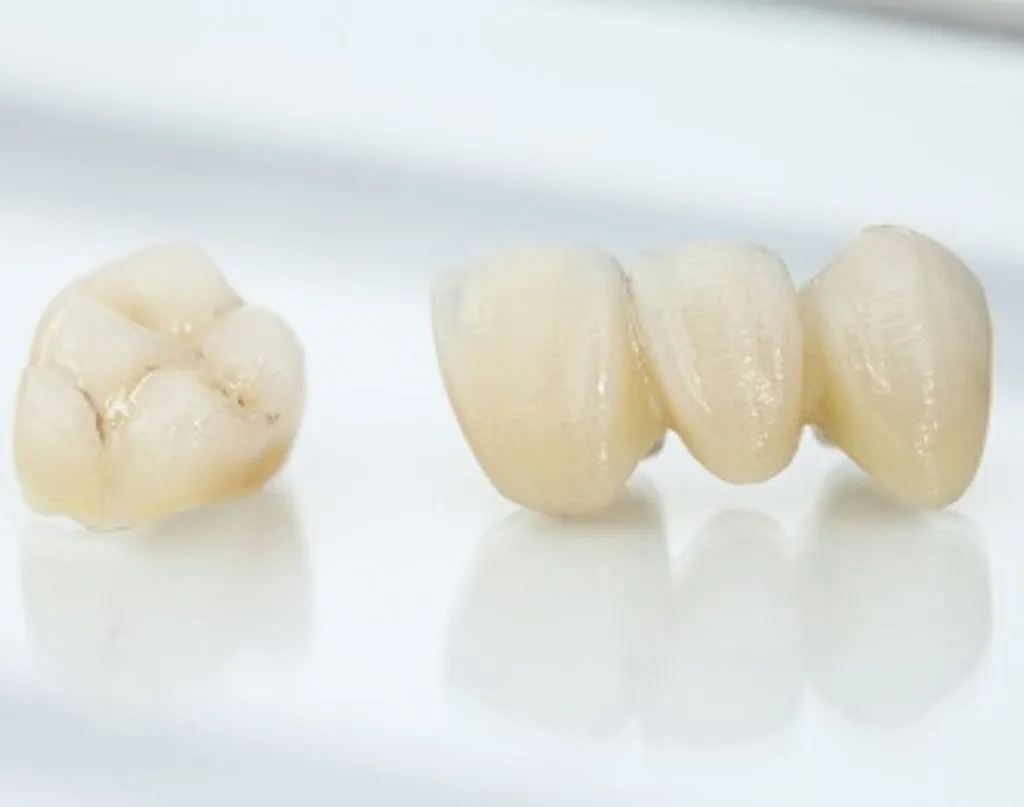Temporary Dental Crown
- Home
- Temporary Dental Crown
verything You Need to Know About Temporary Dental Crowns
While temporary crowns may not be as durable or functional as permanent crowns, they play an important role in maintaining oral health and preventing further damage or infection. Patients who need a temporary crown should discuss their options with their dental provider to determine the best course of treatment for their individual needs.
What Are Temporary Dental Crowns?
Temporary dental crowns are short-term dental restorations that are placed over a damaged or decayed tooth to protect it while a permanent crown is being made. They are used to protect the tooth from further damage, preserve its shape and size, and maintain its function until a permanent crown can be placed.
Temporary dental crowns are typically made from materials that are not as durable as permanent crowns. They are designed to be worn for a short period of time, usually two to three weeks, while the permanent crown is being fabricated in a dental laboratory.

How Are Temporary Dental Crowns Made?
Temporary dental crowns can be made in a dental office or laboratory. The process begins with an impression of the prepared tooth, which is used to create a mold. The mold is then sent to a dental laboratory, where a temporary crown is fabricated using acrylic or composite resin material.
The temporary crown is then cemented onto the prepared tooth using temporary dental cement. The cement allows the temporary crown to be easily removed when the permanent crown is ready to be placed.
What Are Temporary Dental Crowns Used For?
Temporary dental crowns are used for a variety of reasons, including:
Protection: Temporary crowns are used to protect a tooth that has been damaged, decayed, or weakened. They help to prevent further damage or infection and keep the tooth stable until a permanent crown can be placed.
Aesthetic purposes: Temporary crowns can also be used for aesthetic purposes. They can be made to match the color and shape of the surrounding teeth, providing a natural-looking restoration until the permanent crown is ready.
Transitional purposes: Temporary crowns can also be used as a transitional restoration while a patient is undergoing orthodontic treatment. They can help to maintain the proper spacing and alignment of the teeth until the orthodontic treatment is complete.
Benefits of Temporary Dental Crowns
Protection: Temporary dental crowns help to protect damaged or decayed teeth from further damage or infection, allowing patients to maintain their oral health until a permanent crown can be placed.
Comfort: Temporary dental crowns are designed to fit comfortably over the prepared tooth, providing relief from any pain or discomfort associated with a damaged or decayed tooth.
Aesthetics: Temporary dental crowns can be made to match the color and shape of the surrounding teeth, providing a natural-looking restoration until the permanent crown is ready.
Affordability: Temporary dental crowns are typically less expensive than permanent crowns, making them a more affordable option for patients who need a temporary restoration.
Pros and Cons of Temporary Dental Crowns
Temporary Dental Crown Pros:
Protection: Temporary dental crowns provide protection to damaged or decayed teeth, helping to prevent further damage or infection.
Comfort: Temporary dental crowns are designed to fit comfortably over the prepared tooth, providing relief from any pain or discomfort associated with a damaged or decayed tooth.
Aesthetics: Temporary dental crowns can be made to match the color and shape of the surrounding teeth, providing a natural-looking restoration until the permanent crown is ready.
Affordability: Temporary dental crowns are typically less expensive than permanent crowns, making them a more affordable option for patients who need a temporary restoration.
Temporary Dental Crown Cons:
Durability: Temporary dental crowns are not as durable as permanent crowns and may need to be replaced more frequently.
Sensitivity: Some patients may experience sensitivity or discomfort with temporary crowns, especially if the underlying tooth is already damaged or decayed.
Time: The process of getting a temporary crown can take time, as it involves creating a mold and waiting for the temporary crown to be fabricated. Patients may need to schedule multiple appointments to complete the process.
Limited function: Temporary dental crowns are designed to be worn for a short period of time and may not be as strong or functional as permanent crowns. Patients may need to avoid certain foods or activities to prevent damage to the temporary crown.
Cost of Temporary Dental Crowns
The cost of temporary dental crowns can vary depending on a variety of factors, including the location of the dental practice, the materials used, and the complexity of the restoration. On average, patients can expect to pay between $300 and $500 for a temporary crown.
It is important to note that the cost of a temporary crown is typically not covered by insurance, as it is considered a temporary solution until the permanent crown can be placed.
In some cases, dental practices may offer financing options or payment plans to help patients cover the cost of their treatment.
Temporary dental crowns are an important part of restorative dentistry, providing a short-term solution for damaged or decayed teeth. They offer a range of benefits, including protection, comfort, aesthetics, and affordability.
While temporary crowns may not be as durable or functional as permanent crowns, they play an important role in maintaining oral health and preventing further damage or infection. Patients who need a temporary crown should discuss their options with their dental provider to determine the best course of treatment for their individual needs.

